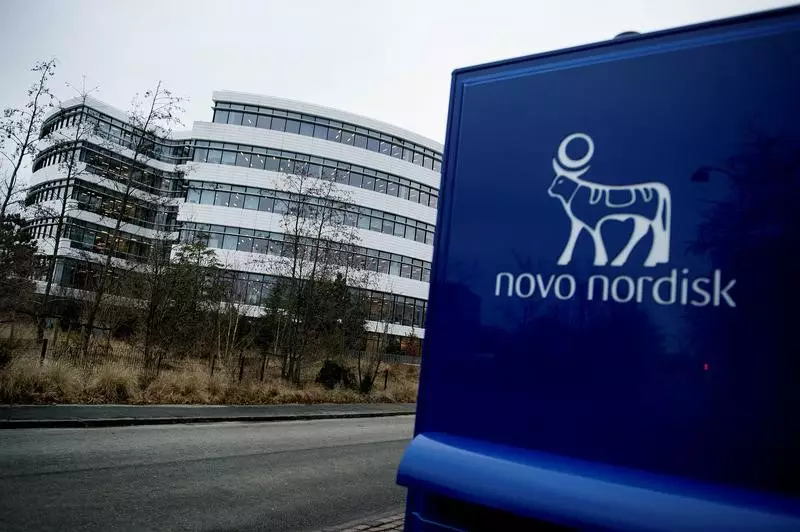Novo Nordisk (NYSE:NVO), a major player in the pharmaceuticals market, suffered a notable decline in its stock price, falling 3.6% on a recent Friday. This downturn follows an important announcement by the U.S. Department of Health and Human Services (HHS), which revealed that the company’s flagship products, Ozempic and Wegovy, are among 15 medications chosen for price negotiations under the Inflation Reduction Act. This news is significant not just for investors but also for patients relying on these essential medications for conditions like diabetes and obesity.
The decline in share price reflects a longer trend; Novo Nordisk has seen its stock fall over 24% in 2025 alone and approximately 39% over the last six months. Such substantial losses can create a ripple effect, affecting not only investor sentiment but also the company’s long-term growth potential. Investors are likely assessing how these negotiations might impact future profitability, especially for drugs that have driven remarkable revenue growth in recent years.
The HHS’s decision to include specific drugs like Ozempic and Wegovy in the negotiation process represents another step in a systematic effort to lower prescription drug prices in the U.S. The negotiations are expected to unfold throughout the year, culminating in new pricing structures set to take effect in 2027. This initiative is particularly crucial given that the 15 selected medications have accounted for around $41 billion in total gross drugs costs covered by Medicare Part D.
HHS Secretary Xavier Becerra emphasized the importance of the Inflation Reduction Act, stating that it is designed to enhance affordability for Medicare beneficiaries. The overarching goal is to ensure that patients can access innovative and life-saving treatments without suffering financial hardship. Furthermore, the Centers for Medicare & Medicaid Services (CMS) Administrator, Chiquita Brooks-LaSure, hinted that this negotiation cycle not only aims to lower costs but also to protect Medicare’s sustainability for future generations.
With Ozempic and Wegovy being primary revenue drivers for Novo Nordisk, their inclusion in the negotiations raises questions about the company’s financial forecasts and strategic positioning. The potential pressure on future revenues, given the introduction of price caps, could result in a reevaluation of the company’s growth strategies. Investors will be closely monitoring how Novo Nordisk adapts to this changing landscape, especially as the negotiations may lead to a reshaping of its product pricing models.
While it is crucial for patients to have access to affordable medication, the ramifications for investors in Novo Nordisk could be substantial. The company’s ability to navigate these uncertain waters will determine its market position in the coming years. The negotiation outcome may set a precedent, not just for Novo Nordisk, but for the entire pharmaceutical sector, potentially leading to a transformative shift in how drugs are priced and marketed in the United States.
While the Medicare Drug Price Negotiation Program aims to create a more equitable healthcare environment, it places significant pressure on pharmaceutical companies like Novo Nordisk, challenging them to balance profitability with the pressing need for affordability in health care. The next few years will be critical in determining the real impact of these negotiations, both on the company’s financial health and the broader pharmaceutical landscape.

